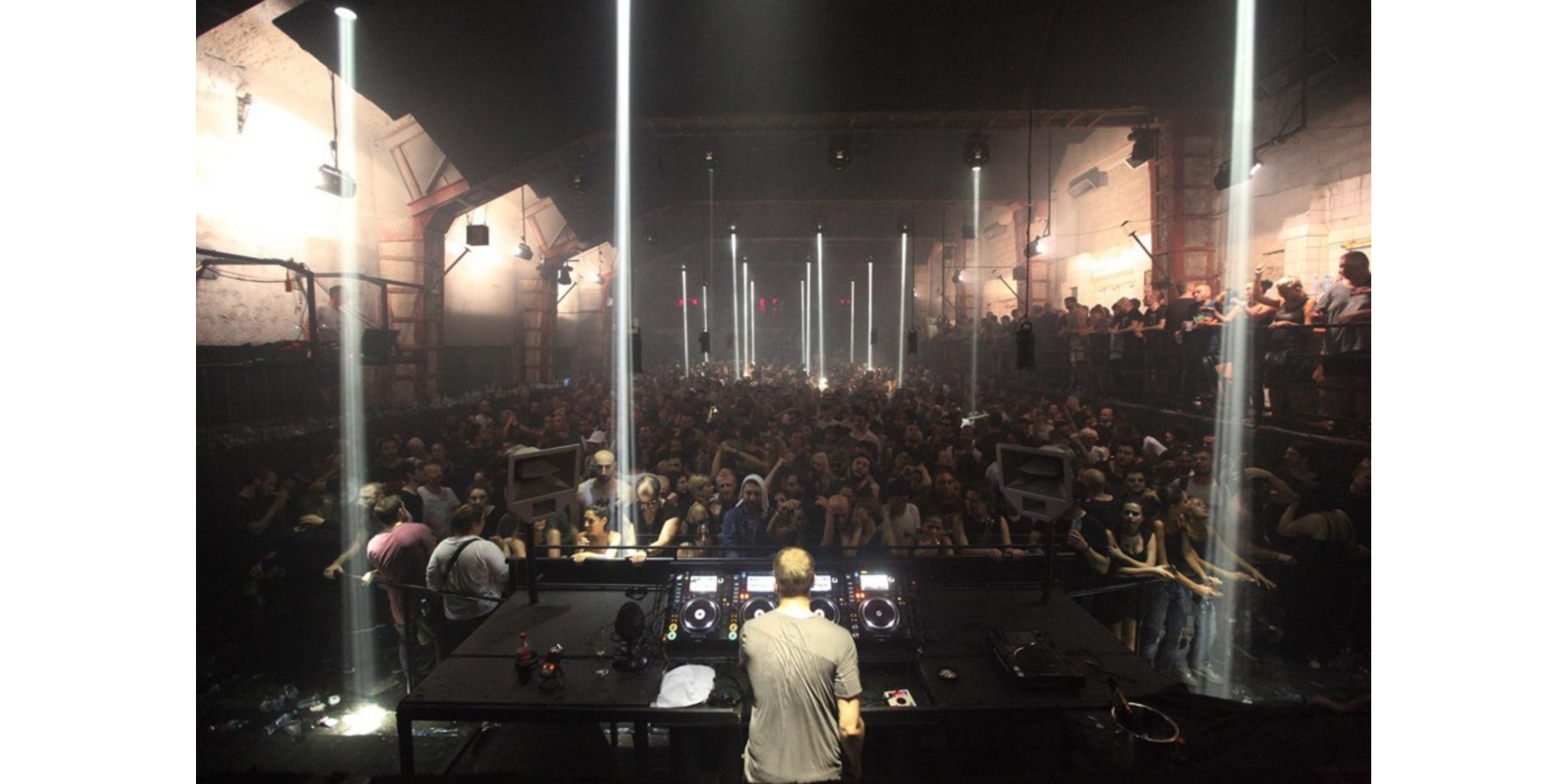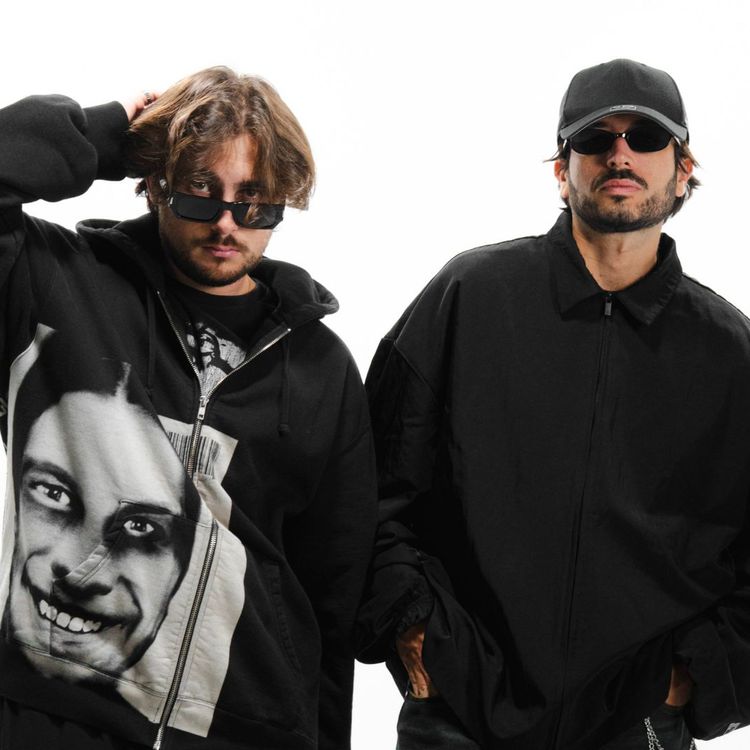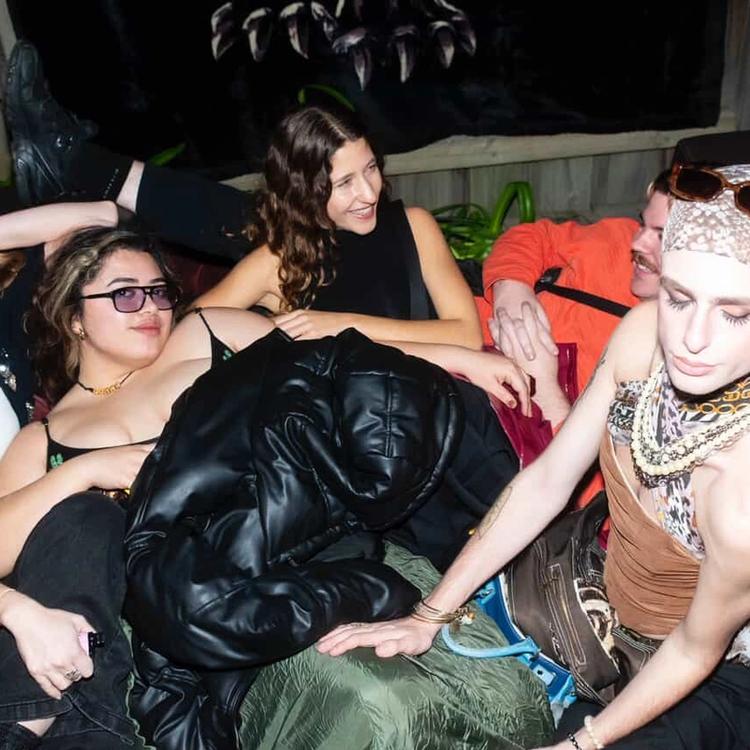City Beats: Techno in Tbilisi
How nightclubs in Georgia’s capital became a symbol of resistance
A Brief History of Techno in Georgia
Electronic music became a fixture of Georgia’s cultural psyche not long after the fall of the Soviet Union in 1991. The fall of the Iron Curtain gave Georgian artists access to recordings from Europe, new equipment, and technical knowledge from around the world. And with over a quarter of the country’s population living in Tbilisi, that’s where the techno scene emerged.

Dima Dadiani and Nika Machaidze spearheaded Tbilisi’s techno revolution. They used sequencers, drum machines, and basic recorders to create Georgia’s first techno tracks and organized Tbilisi’s first event, 'A Sweet Evening of Electronic Music,’ in the late '90s.
In the early 2000s, they launched the electronic artist collective Goslab. Members released on German techno labels which created a bridge between Tbilisi and Berlin, Europe’s capital of techno.

Bassiani Nightclub
Techno as Resistance
Georgia’s electronic music artists have always been on the fringes of society. They connect with the liberal values of Europe, rather than the restrictive norms of their Soviet past. This means the club community has always been resistant to any return to the Soviet Union era.
Bassiani is widely cited as Georgia’s first techno club. Founded by Zviad Gelbakhiani, Tato Getia, and Naja Orashvili and named after the 13th-century independence war of the Georgian kingdom in Basian, they opened their doors in 2014 to expand the cultural landscape of Tbilisi and connect Georgian artists with the rest of the world. Since then, Bassiani has become a beacon of club culture in Central Europe. Over the years, it’s become the epicenter of like-minded progressives who meet, dance, release, and exchange ideas. Because of this, the community naturally joined the front lines of political protests, especially surrounding issues of Russian influence in Georgia’s government.

Café Gallery opened in 2008 as the city’s first queer event space. They host local and international techno artists and provide a space for marginalized communities to come together, free of society’s pressures. It’s part venue and part art space, which means the walls are often covered with political art which protests the country’s increasing authoritarianism and promotes liberal values.

The Left Bank is another Tbilisi nightclub known for its progressive values and strong sense of community. They opened their doors in 2020, with the aim of creating a post-industrial club and community space in the heart of Tbilisi.

From Raves to Raids
Tbilisi’s underground clubs are safe havens for marginalized communities, including LGBTQIA+. This makes them a target for Georgia’s conservative authorities, and in 2018 Bassiani and Café Gallery were raided by armed police under the guise of an anti-narcotics operation. Bassiani is connected with the White Noise activist movement, which campaigns for the liberalization of Georgia’s drug legislation. Eight alleged dealers were arrested after the deaths of at least five young people believed to have taken drugs while clubbing.

The raid led to mass protests across Tbilisi and violent altercations with armed forces and right-wing extremists. Since then, Russian influence has continued to rise, so Tbilisi’s nightclub community repeatedly clashes with authorities. In 2019, protests erupted when the government allowed a Russian representative to take over the seat of the head of parliament.
The most recent clashes started in October 2024, after the right-wing party Georgian Dream won the parliamentary election. They soon announced the delay of Georgia’s EU accession process, and the election has since faced allegations of fraud.
Tbilisi’s nightclub community quickly mobilized in protest, and they closed their doors for 40 days to urge the community to take to the streets instead of the dance floors. The clubs re-opened for New Year's Eve, however celebrations were muted.

”Upcoming NYE is bound to be anything but an ordinary celebration,” wrote the Left Bank on social media. “Amid ongoing challenges, we all gather at the Parliament building to welcome the New Year, with our doors opening later than usual.”
With authoritarianism on the rise in Central Europe and beyond, there’s no doubt that Tbilisi’s nightclubs, promoters, artists, and dancers will continue to fight for a new social order. One that’s rooted in freedom, equality, and solidarity, and soundtracked by techno.
















